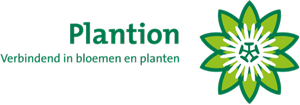Reorganization product groups en product codes Citrus from 1 January 2017
As you know, the horticultural sector is currently undergoing radical development in many areas. One of the evident trends in consumer needs is for edible plants. There is also a need to create more clarity in the chain regarding product names and uniformity of VBN coding. After going through an intensive process with various Citrus suppliers, buyers, Floricode, product manager and the Product Specifications Department and involving Royal FloraHolland regulations, the following changes are planned.
The product groups and codes for Citrus will be reorganised. Currently, they are distributed over 4 product groups. From 1 January 2017, there will be just one Citrus product group (3 05 133 01) containing 18 product codes.
In addition, the grading code S91 (common fruit name) has been created. Products are described with their botanical/scientific name. This grading code ‘common fruit name’ will assist consumers and the trade to understand better which product they are buying.
For example: Product code 47754 Citrus sinensis – with S91 set at 001, you can indicate an orange.
From 1 January 2017 the grading codes for Citrus are:
| Position | Code | Description | Prescription |
| 1 | S01 | Pot size | Mandatory |
| 2 | S02 | Minimum plant height | Mandatory |
| 3 | S46 | Number of fruits/bunches | Recommended |
| 4 | S91 | Common fruit name | Recommended |
| 5 | |||
| 6 | S77 | Edible/inedible | Mandatory |
You can use the link of which product codes are concerned and the content of grading code S91.
You can examine the quality codes using the link below



